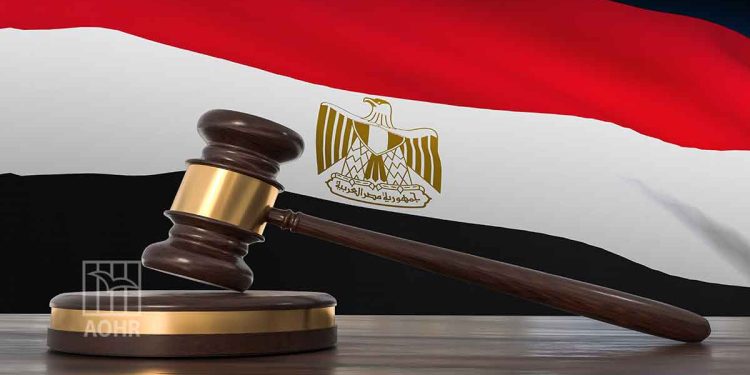The Cairo Court of Appeal decided the trial of 52 Egyptian citizens on July 21, including four journalists and eight young women. The case, listed as No. 680 of 2020 in the records of the Supreme State Security Prosecution, comes after years of prolonged detention without trial.
The case, which was put on hold for years before being suddenly reopened, is based on vague accusations that have often been used as tools to silence critics and suppress dissent, including “joining a banned group”, “spreading false news”, and “funding activities hostile to the state”. In reality, the case clearly represents another chapter in the use of the judiciary as a political instrument aimed at stifling freedoms and silencing critical voices.
Over the years, the defendants have been subjected to a recurring pattern of serious human rights violations, including arbitrary arrests from their homes without judicial warrants, enforced disappearances for varying periods, and prolonged detention in inhumane conditions, all without being brought before a proper court or granted access to legal defence.
Notably, the case includes four journalists from diverse professional backgrounds, all of whom found themselves behind bars instead of in newsrooms due to the same oppressive security practices. Among them is Amr Mahmoud Al-Qazzaz, co-founder of the news platform Rassd, known for its grassroots coverage of political and social issues, Medhat Ramadan, who worked across various media outlets including Shababeek, as well as journalists Amr Emad Abdullah and Abdallah Shahatah Abdel-Gawad.
Their presence in the dock sends a clear message, independent journalism is now a direct target, and the space for free expression is narrowing rapidly, increasingly restricted to echoing the official narrative or facing repression.
Also on trial are eight young women, a stark reflection of how Egypt’s repressive machinery no longer spares anyone, even the most vulnerable members of society.
What stands out in this case is that many of the defendants have been held in pretrial detention far beyond the legal maximum set by Egyptian law, which stipulates a two-year limit. Some have been imprisoned for over three years without trial, in clear violation of even the most basic legal safeguards.
Enforced disappearance has also been a recurring feature, with some defendants hidden for months and subjected to various forms of torture, including electric shocks and beatings, leaving visible signs that appeared during their presentation to the prosecution.
This case unfolds in a charged political and security climate in which the state is increasingly nationalising the public sphere, where every dissenting voice is treated as a threat, and any independent civic or media activity risks being labelled a danger to national security. Security agencies now control the levers of detention and release, while the Public Prosecution functions more as a rubber stamp than a body of oversight.
Most worryingly, these cases serve not only to punish the accused, but to intimidate the wider public, sending a clear warning to anyone who dares express a dissenting opinion or engage in public life outside the official framework.
What is happening here is not an isolated incident, it is a stark embodiment of the current nature of Egypt’s judicial and security system, where the law becomes a tool of repression, justice is hijacked in the name of security, and freedoms are dismantled under the banner of stability.


























